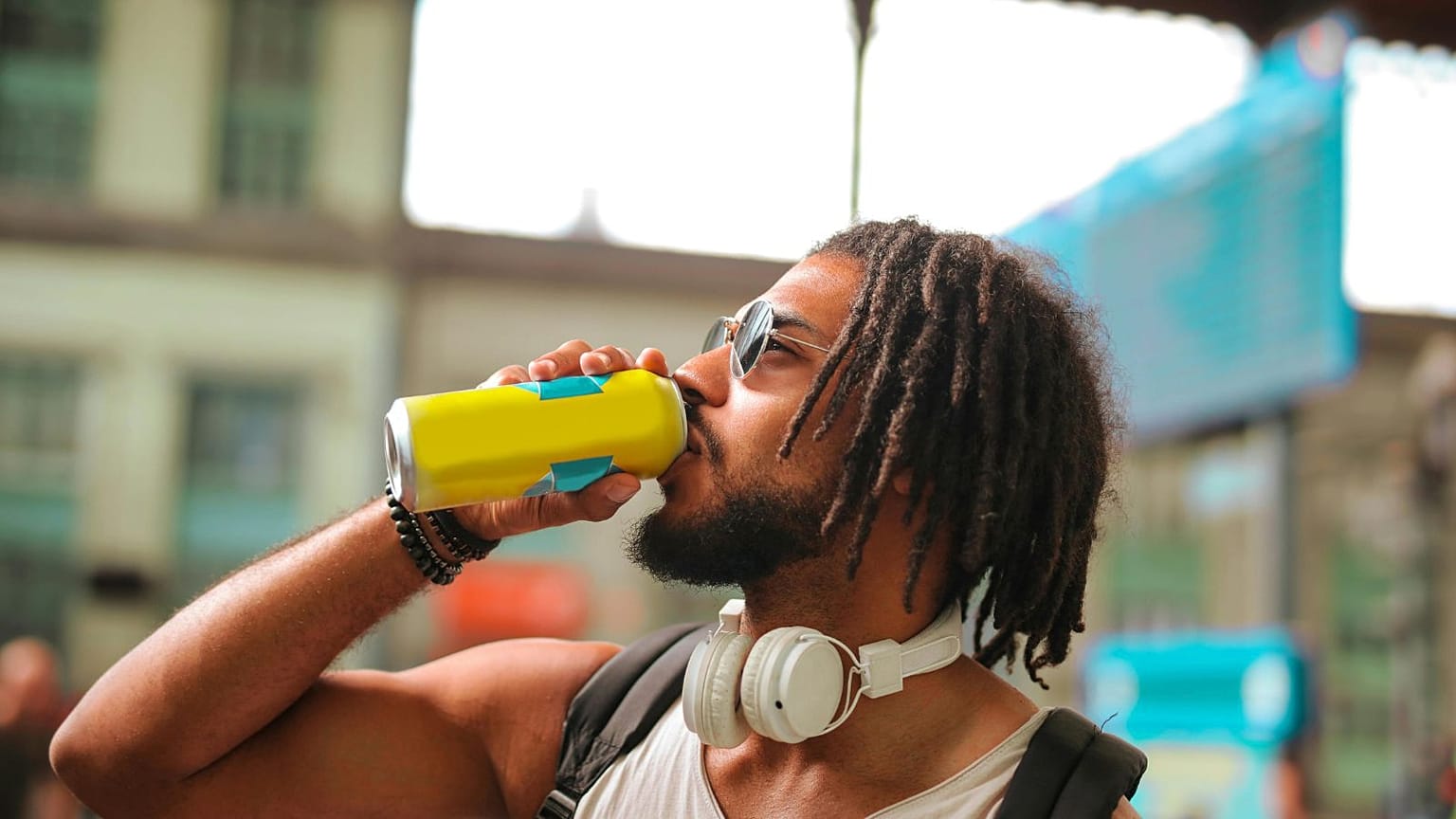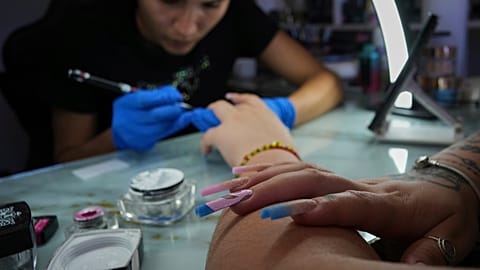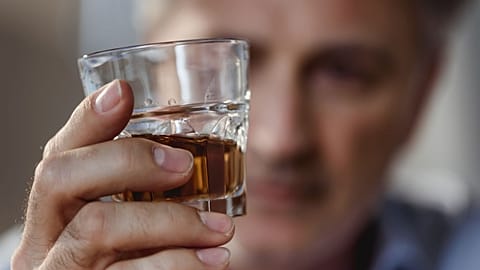Functional beverages such as TRIP drinks quench our need for quick fixes in a wellness-obsessed landscape. But how much of what they promise is true?
 ADVERTISEMENT
ADVERTISEMENT
Wandering the supermarket aisles of 2025, you’ve likely stumbled across colourful cans brandishing bold and alluring promises of ‘calm’ and ‘focus’.
Known as functional beverages, they often include a host of strange-sounding ingredients: Ashwagandha (a medicinal herb), Lion’s Mane (a type of mushroom), and various other plant compounds, vitamins and minerals that claim to naturally enhance mental wellbeing.
Their popularity has swelled in recent years, with the global market for functional drinks estimated to reach $248.51 (€212) billion by 2030 according to Grand View Research. It’s part of a broader societal shift away from alcohol, with 44 per cent of British people aged 18-24 now choosing low or non-alcoholic alternatives instead, a survey by YouGov found.
“These products fit perfectly into today’s wellness culture, where people are more aware of their mental and physical health and are seeking convenient solutions,” Nicolle Cucco, a registered dietitian and certified personal trainer at the health app Muscle Booster, told Euronews Health.
“In a world that feels increasingly fast-paced, the idea of a quick, drinkable fix is very attractive. Add social media, clever branding, and rising levels of stress and anxiety to it, and you have an explanation for the growth in demand,” she added.
While drinks that taste nice and make us feel better indeed sound enticing, are they too good to be true? We spoke to experts to find out how effective they actually are.
What are functional drinks and do they actually work?
Functional drinks refer to any beverage that includes ingredients that provide additional benefit to mental or physical health.
From coffee to chamomile tea, humans have always consumed functional drinks, but it’s the rise of brands such as TRIP and Huel, alongside health supplements, that have commercialised the market into a wellness behemoth.
Founded in 2019 by husband-and-wife Olivia Ferdi and Daniel Khoury, TRIP first gained attention for its pastel-coloured cans and CBD (cannabidiol - a compound of cannabis plants) infused concoctions.
Lightly fizzy and flavoured with botanical extracts, their drinks also commonly feature L-Theanine (a non-protein amino acid found in tea leaves), magnesium, and ashwagandha.
“There is promising evidence for some of these ingredients, though results vary and the research is limited,” said Cucco. “Ashwagandha and L-theanine have shown benefits in randomised trials, particularly for stress, anxiety, or attention. Magnesium is better studied, but supplementation only helps if you’re deficient - if your levels are normal, taking more isn’t likely to make a difference”.
This ambiguity on efficacy has led to scepticism - and some controversy.
Beware of buzzwords
In July, an advert by TRIP was banned in the United Kingdom after implying that its cucumber and mint-flavoured drink could reduce stress and anxiety; claims which the Advertising Standards Authority (ASA) found were unauthorised.
“If a product is said to help “calm” or “relieve anxiety”, these claims have to be backed by science,” Lena Bakovic, a registered dietitian at Live it Up, a brand selling nutritional powders and supplements, told Euronews Health.
“Over-promising can and will eventually lead to consumer disillusionment, misuse, or apathy for alternative evidence-based methods,” she continued.
The advert’s ban also highlights the fine line between authenticity and placebo when it comes to wellness products, the truth tangled in empty buzzwords and aspirational aesthetics.
“The placebo effect is particularly powerful in this space because mood and focus are subjective experiences,” Cucco explained. “Simply believing a drink will help you relax can genuinely change how your brain perceives stress. That doesn’t mean the products are useless, but it does mean that expectation can often amplify their effects”.
Euronews Health contacted TRIP for comment, but did not receive a reply at the time of writing.
Not a quick fix
The functional drink movement has been largely driven by social media. Wellness influencers often advertise vitamin-infused drinks like Huel and Athletic Greens on YouTube and TikTok.
In this sense, the appeal of functional drinks becomes similar to the videos they’re attached to: a seemingly quick, easy solution to more complex, nuanced issues.
“The growing popularity of social media and influencer culture has increased consciousness and perceived trustworthiness of these products,” said Bakovic.
While enjoying them in addition to a healthy lifestyle is unlikely to cause any harm (except maybe to your bank balance - a 12-pack of TRIP can cost up to €27), these drinks are not a reliable way of treating symptoms of more severe conditions, like generalised anxiety disorder or Attention Deficit Hyperactivity Disorder (ADHD), Cucco explained.
“It’s important to note that for people with neurodevelopmental conditions such as ADHD, the picture may be different, and these drinks - placebo or not - are not suitable for medical treatment,” she said.
“I would urge consumers to pause, look beyond the marketing, and do a bit of research before deciding what to buy. Some ingredients may be beneficial, others less so, and taking the time to understand what you’re putting into your body is often the wisest approach,” Cucco added.

















